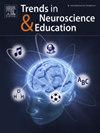弹性应对在大学生特质情商与学业动机之间的中介作用
IF 3
Q2 NEUROSCIENCES
引用次数: 0
摘要
大学生缺乏学习动力已经成为当前欧洲高等教育区面临的主要挑战,这反映在高辍学率和低学习成绩上。摘要本研究旨在探讨大学生情绪智力、弹性应对与学业动机之间的直接和间接关系。这三个变量是相关的,因为它们有助于适应学术和社会挑战,提高学生的表现和整体福祉。方法对693名平均年龄19.65岁(SD = 2.8)的教育学生进行情商、弹性应对和学习动机问卷调查。描述性分析、Pearson相关分析和使用结构方程的中介模型。结果弹性应对在情商与学业动机的关系中起部分中介作用,表明情绪技能越高的学生倾向于采用更有效的应对策略,从而增强了他们的内在学习动机。另一方面,弹性应对在情绪修复与学业动机的关系中起部分中介作用。从神经科学的角度来看,情商涉及自我调节、注意力和执行控制等关键过程,这些都是学习和学业表现的基础。在此背景下,本研究的结果强调了将情商发展融入课程设计的重要性,不仅可以提高幸福感,还可以促进弹性应对和加强学习动机。本文章由计算机程序翻译,如有差异,请以英文原文为准。
The role of resilient coping as a mediator between trait emotional intelligence and academic motivation in university students
Introduction
The lack of motivation among university students has become a key challenge in the current European Higher Education Area, reflected in high dropout rates and low academic performance. The aim of this study is to analyze the direct and indirect relationships between emotional intelligence, resilient coping, and academic motivation in university students. These three variables are relevant as they facilitate adaptation to academic and social challenges, enhancing students' performance and overall well-being.
Method
Questionnaires assessing EI, resilient coping, and academic motivation were administered to 693 education students with an average age of 19.65 years (SD = 2.8). Descriptive analyses, Pearson correlation analyses, and mediation models using structural equations were performed.
Results
The results suggest that resilient coping is a partial mediator in the relationship between EI and academic motivation, indicating that students with higher emotional skills tend to employ more effective coping strategies, which reinforces their intrinsic motivation toward learning. On the other hand, resilient coping was a partial mediator in the relationship between emotional repair and academic amotivation.
Conclusions
From a neuroscience perspective, emotional intelligence involves key processes such as self-regulation, attention, and executive control, which are fundamental for learning and academic performance. In this context, the findings of this study highlight the importance of integrating emotional intelligence development into curriculum design, not only to enhance well-being but also to promote resilient coping and strengthen academic motivation.
求助全文
通过发布文献求助,成功后即可免费获取论文全文。
去求助
来源期刊

Trends in Neuroscience and Education
NEUROSCIENCES-
CiteScore
6.30
自引率
6.10%
发文量
22
审稿时长
65 days
 求助内容:
求助内容: 应助结果提醒方式:
应助结果提醒方式:


